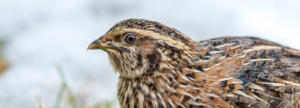Malta e’ stata chiamata dal Parlamento Europeo sulla caccia degli uccelli
Europarlamentare Anja Hazekamp ha chiamato il presidente maltese Joseph Muscat nel Parlamento Europeo per finire la crudele caccia sugli uccelli migranti. Hazekamp ha fatto cio’ durante il primo dibattito con Malta come presidente della UE.

Secondo le organizzazioni per la natura, Malta uccide oltre centomila uccelli durante le stagioni di caccia di primavera ed autunno. Malta non puo’ fare da presidente della UE in modo credibile per quanto riguarda gli argomenti sul benessere degli animali, finche’ consenta questa caccia di uccelli, dice Hazekamp.
“Milioni di uccelli migranti usano Malta come punto di riposo durante il loro viaggio. Ma il riposo e’ difficile. Al momento e’ ancora in corso la caccia di autunno su centinaie di specie. E se Malta non fa niente, i cacciatori uccideranno nuovamente oltre diecimila tortore e quagli ad aprile. Anche altre specie che sono tutelate e minacciate a livello internazionale, vengono uccise durante la caccia. I membri della UE e le organizzazioni naturali investono molto tempo e denaro nella tutela dei nostri uccelli, ma Malta azzera in un colpo tutti questi impegni. La caccia maltese sugli uccelli e’ inaccettabile e contraria agli accordi internazionali di tutela. Malta puo’ scegliere: vuole essere vista come un bel paradiso mediterraneo per gli uccelli o come un paese a chi piace uccidere?” dice Hazekamp.
In passato, il Partito per gli Animali ha gia’ fatto presente la caccia degli uccelli a Malta. Il partito si e’ anche impegnato per mantenere le linee guida europee sugli uccelli tramite l’iniziativa “niente censura sulla natura”. Quest’iniziativa doveva tutelare gli uccelli in Europa contro la caccia.
MEP Anja Hazekamp called on the Maltese Prime Minister Joseph Muscat in the European Parliament to ban the horrific hunting of migratory birds. Hazekamp made her call during Malta’s first debate as EU President.

According to nature organisations, Malta kills over one hundred thousand birds during the hunting seasons in spring and autumn. Malta cannot make a credible commitment to animal welfare as long as Muscat, as EU President, allows this bird hunting, according to Hazekamp.
“Millions of migratory birds come to rest in Malta on their route. But the rest is hard to find. The autumn hunt on dozens of types of birds is currently still going strong. And if Malta refuses to take action, hunters will again kill ten thousands of European turtle doves and quails. Other internationally protected and endangered birds too fall prey to these hunters during hunting. Member states and nature organisations put in a lot of time and money to protect our birds, but that is cancelled out immediately by Malta. The Maltese witch-hunt for birds is unacceptable and is in conflict with international protection treaties. It’s up to Malta: “Does it want to be seen as a beautiful Mediterranean birds paradise or as a killer island for killer hunters?” according to Hazekamp.
The Party for the Animals raised the subject of bird hunting in Malta before to the European Commission. The Party also committed itself to safeguarding the European Birds Directive, which should protect birds in Europe against hunting, with its action ‘No Censorship on Nature’.